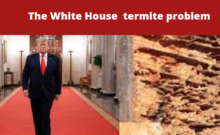This past week we learned that the Foreign Corrupt Practices Act (FCPA) has teeth. JP Morgan Chase (JPMorgan) essentially, used the hiring of the children of Chinese leaders as a bribe in exchange for US$100,000,000 in deals in China a violation of the FCPA. In addition the bank violated the anti-bribery, books and records, and internal controls provisions of the Securities Exchange Act of 1934. JPMorgan has agreed to a pay US$264 million settlement with the Security and Exchange Commission over charges they violated the FCPA and the Securities Exchange Act of 1934.
The Fine
The SEC notes in their announcement of 17 November 2016, the bank has agreed to pay
- more than $130 million to settle SEC charges that it won business from clients and corruptly influenced government officials in the Asia-Pacific region by giving jobs and internships to their relatives and friends in violation of the Foreign Corrupt Practices Act (FCPA)
- $72 million to the Justice Department
- $61.9 million to the Federal Reserve Board of Governors
- $105,507,668 in disgorgement plus $25,083,737 in interest to settle the SEC’s case.
[bctt tweet=”JP Morgan violates #FCPA w/bribes in #China – SEC collects US$264,000,000 penalty payment” username=”PrevendraInc”]
The FCPA Crime
The statement continues, “… investment bankers at JPMorgan’s subsidiary in Asia created a client referral hiring program that bypassed the firm’s normal hiring process and rewarded job candidates referred by client executives and influential government officials with well-paying, career-building JPMorgan employment. During a seven-year period, JPMorgan hired approximately 100 interns and full-time employees at the request of foreign government officials, enabling the firm to win or retain business resulting in more than $100 million in revenues to JPMorgan.”
The 17 November New York Times reports, “JPMorgan … formalized the hiring into what it called the Sons and Daughters program. The bank even went so far as to create spreadsheets that tracked its hires to specific clients — and the bank’s ability to convert these hires into business deals.”
Interestingly, a former JPMorgan executive who apparently spearheaded the Sons and Daughters program, banker Fang Fang, was arrested in 2014 in Hong Kong by the territory’s anti-corruption agency. The arrest may have been as a direct result of this multiyear SEC/DOJ investigation into JPMorgan’s violation of the FCPA. It is believed, one of Fang’s emails contained the necessary confirmation that a violation of the FCPA had occurred which directly related to the capture of business. The New York Times provides a Fang quote, “You all know I have always been a big believer of the Sons and Daughters program — it almost has a linear relationship.”
CNBC on Fang Fang’s 2014 arrest
Separately, the Department of Justice announced that the JPMorgan Hong Kong subsidiary has agreed to pay a fine of US$72 million. The DOJ announcement, stated, “PMorgan Securities (Asia Pacific) Limited (JPMorgan APAC), a Hong Kong-based subsidiary of multinational bank JPMorgan Chase & Co. (JPMC), agreed to pay a $72 million penalty for its role in a scheme to corruptly gain advantages in winning banking deals by awarding prestigious jobs to relatives and friends of Chinese government officials.”
[bctt tweet=”In 2016, 23 companies violated the Foreign Corrupt Practices Act #FCPA all w/SEC fines” username=”PrevendraInc”]
The takeaway for US businesses
The business customs and practices in a given country may not be in accordance with the laws and regulations which encumber US businesses in the United States. The FCPA exists, to prevent US businesses from engaging in corrupt business practice when engaged in international commerce, and send a clear message, that bribery is an unacceptable practice, regardless of its acceptability in a given country or culture.
In 2016 the SEC has reached settlement in 23 separate cases of FCPA violation (including the JPMorgan violation) . The description of these securities-exchange-commission-list-of-fcpa-settlements-in-2016 includes Brazilian aircraft manufacturer Embraer agreed to pay $205 million to settle charges that it violated the FCPA to win business in the Dominican Republic, Saudi Arabia, Mozambique, and India; U.K. biopharmaceutical AstraZeneca agreed to pay more than $5 million to settle FCPA violations resulting from improper payments made by subsidiaries in China and Russia to foreign officials; and in a very similar case, US Qualcomm agreed to pay $7.5 million to settle charges that it violated the FCPA when it hired relatives of Chinese officials deciding whether to select company’s products.
What is clear. Having internal controls and discovering violations of the FCPA and self-reporting, is what is expected by the SEC, and as a review of the 2016 settlements demonstrate, the settlement addresses the ill gotten gains, and normally does not include a criminal aspect.
Bottom line
All businesses which are engaged or contemplating international business, should arrange for their executives and business development staff to be well schooled in the nuances of FCPA, before they embark on business abroad.
Updated 11/21/2016 12:50 for DOJ fine of JPMorgan Hong Kong subsidiary



